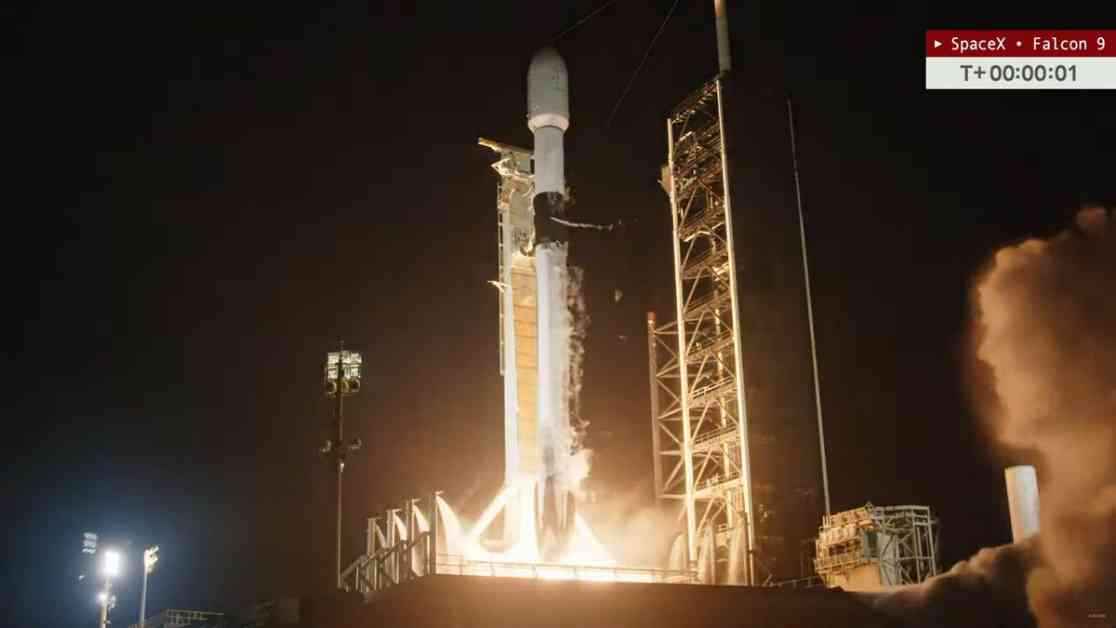In a groundbreaking move that defies the conventional limits of data storage, Lonestar, a prominent data center company, has set its sights on the moon as the ultimate safe haven for precious information. Collaborating with Phison and SpaceX, the company has embarked on a revolutionary ‘Freedom Mission’ that aims to deploy a storage service on the lunar surface.
This unprecedented endeavor involves the launch of a Falcon 9 rocket carrying an enterprise-grade SSD from Phison, specifically designed to withstand the rigors of space travel and lunar conditions. The SSD, part of Phison’s Pascari series, has been meticulously tested to endure cosmic radiation, temperature fluctuations, and the intense vibrations associated with lunar landings.
The strategic partnership between Phison and Lonestar underscores a significant milestone in the realm of space-based technology. By leveraging advanced storage solutions, the companies are pioneering a new frontier in data security, offering a robust defense against natural disasters and unforeseen disruptions that could compromise critical information.
Amidst the technical intricacies of the ‘Freedom Mission,’ there lies a compelling narrative that transcends mere innovation. The prospect of storing essential data on the moon evokes a sense of resilience and foresight, positioning humanity to safeguard its collective knowledge beyond the confines of Earth. The symbolic gesture of preserving iconic documents such as the US Declaration of Independence, Constitution, and Bill of Rights on previous missions underscores the profound significance of this endeavor.
Pushing the Boundaries of Possibility
As Lonestar continues to push the boundaries of space-based data services, the concept of Recovery and Resiliency as a Service (RaaS) emerges as a pivotal component of its mission. This premium data backup service on the moon signifies a strategic shift towards innovative solutions that transcend conventional paradigms.
The aesthetic finesse of the 3D-printed data center within the payload, paying tribute to NASA astronauts Charlie Duke and Nicole Stott, adds a poignant touch to an otherwise technical feat. The fusion of artistry and technology underscores the human element inherent in corporate space exploration, infusing a sense of wonder and reverence into the mission.
Charting the Future of Space Exploration
While the success of the ‘Freedom Mission’ hinges on its imminent landing on the lunar surface on March 4, the resounding demand for space-based data services speaks volumes about the evolving landscape of commercial space transportation. Lonestar’s pioneering initiatives have garnered widespread acclaim, with all capacity for the next mission already sold out, signaling a promising future for extraterrestrial data storage.
As the world eagerly anticipates the outcome of this historic mission, the convergence of cutting-edge technology and visionary ambition propels humanity towards a new era of space exploration. The integration of 4G connectivity on the moon, courtesy of Nokia’s payload, further underscores the transformative potential of space-based initiatives, paving the way for unprecedented advancements in communication and data infrastructure.
In conclusion, the fusion of corporate ingenuity, technological prowess, and human aspiration embodied in the ‘Freedom Mission’ heralds a new chapter in the annals of space exploration. With each milestone achieved and every barrier surmounted, the journey to the moon becomes not merely a quest for data storage but a testament to the indomitable spirit of innovation that propels humanity towards the stars and beyond.





















